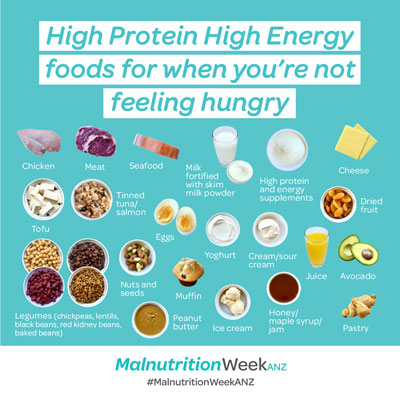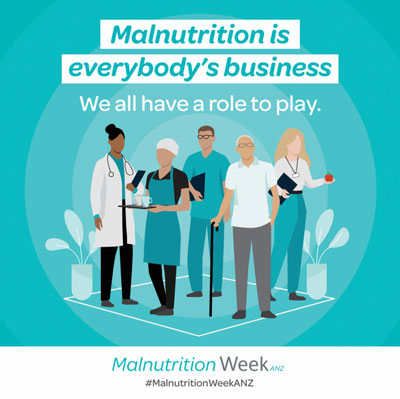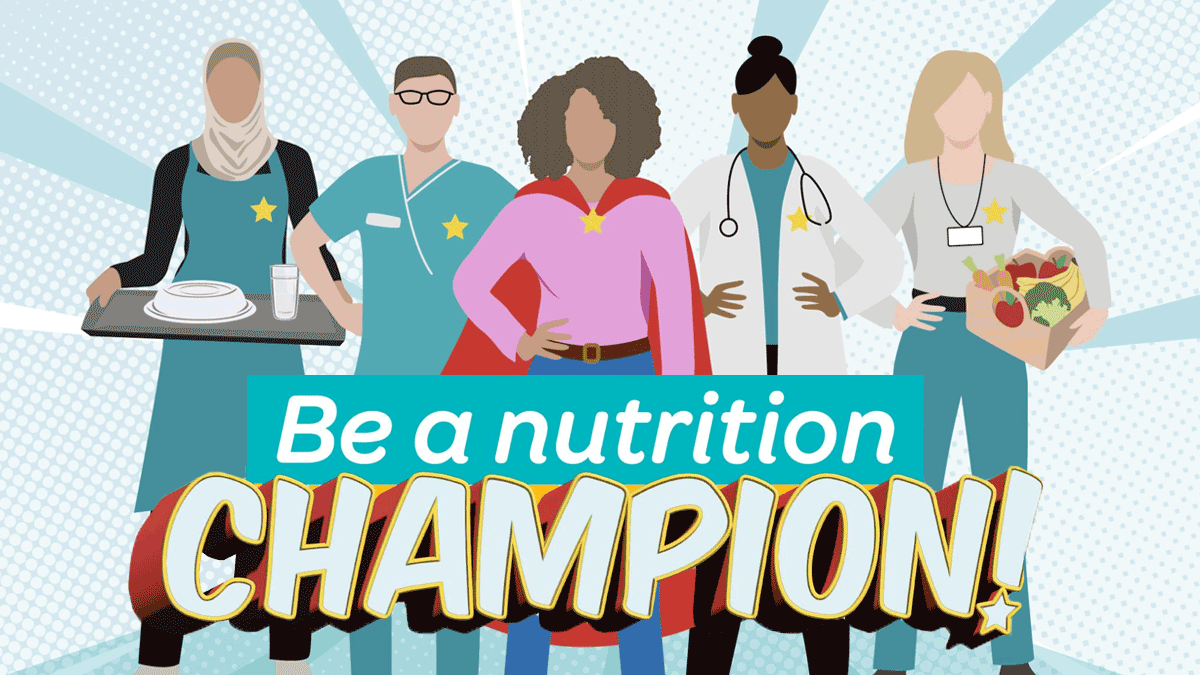This week is 2022 Malnutrition Awareness Week & Dietitian Connection is calling all health professionals to put on their metaphorical superhero cape & be a nutrition champion. We can all support those within our communities to reduce malnutrition risk.
Malnutrition is a serious condition which can occur if a person is unable to meet their nutritional needs, such as not enough calories, protein, carbohydrates, fats, and vitamins and minerals. A person can become malnourished for many reasons. However, the risk is much higher if they do not eat enough, eat the right types of food, or if their body is not able to effectively absorb certain nutrients.
Malnutrition is linked to poor health and can occur in anybody who is not receiving the right balance of nutrients to function optimally. It can also occur more commonly in hospital and aged care settings. Malnutrition can cause long term health problems which is why early detection and prevention is key.
People who have become malnourished are likely to lose weight, body fat, or muscle mass which can impact their daily activities and quality of life. Having the input of a multidisciplinary allied health team, especially an Accredited Practising Dietitian, can increase a persons’ chance of recovery, decrease their chance of re-admission or developing a secondary illness, and help someone on their journey to total wellbeing.
Eating a well-balanced diet is important to your health and overall quality of life. Most people do not recognise the signs and symptoms of malnutrition or know it can occur in any body shape or size.
Spot the Signs and Symptoms of Malnourishment
 Signs and symptoms of malnourishment can include:
Signs and symptoms of malnourishment can include:
- Unintentional weight loss
- Increase in falls
- Reduced appetite, or loss of interest in foods you once enjoyed
- Lethargy and weakness
- Recurrent illness and longer recovery
- Hair loss
- Poor wound healing
- Constipation and dehydration
- Low mood or depression
- Poor concentration
- Developmental and growth issues in children
 It can be difficult to identify malnutrition, but many environmental and societal factors can play a part in a person becoming malnourished.
It can be difficult to identify malnutrition, but many environmental and societal factors can play a part in a person becoming malnourished.
This may include:
- An elderly person with an acute illness
- A person with dementia
- Physical disabilities
- Respiratory illnesses – COPD
- Eating Disorders
- Stress or low mood leading to an increase in eating out, or low interest in food
- Medication that decreases appetite
- Food insecurity or poverty
- Confusion around what foods provide appropriate nutrients
- Dislike of cooking
- Loss of appetite
- Alcohol or drug dependency
- Difficulty chewing or swallowing (dysphagia)
- Increased energy needs (illness, exercise)
- Living alone/ social isolation
- Teeth in poor condition or loose dentures
Dietetics and Nutrition Support
A dietitian provides expert nutritional support and is a crucial role in treating and managing malnutrition. They are able to educate other health professionals, carers/family, and individuals in how to identify signs of malnutrition. They empower people to manage the condition and improve their nutritional status which enhances quality of life.
Support from our multidisciplinary team includes Accredited Exercise Physiologists, Occupational Therapists, Physiotherapists, Psychologists & Speech Pathologists.
By engaging with a multidisciplinary team in your community you will find that prevention and recovery are within reach. Alliance Rehabilitation are here to help you live a healthier and happier life. Awareness of malnutrition is crucial. Increased screening and better prevention measures will equate to a better quality of life and your total wellbeing. Contact us today to get started.
.
.
References
Dietitians Australia. (2020). Malnutrition – who is at risk and things to consider. Retrieved from https://dietitiansaustralia.org.au/smart-eating-for-you/smart-eating-fast-facts/medical/malnutrition-who-is-at-risk-and-things-to-consider/
International Council on Active Aging. (2017). How to take action during Malnutrition Awareness Week. Retrieved from https://www.icaa.cc/blog/2017-09/How-to-take-action-during-Malnutrition-Awareness-Week.htm
VMCH. (2020). Malnutrition Week – A VMCH Dietitian’s Insight. Retrieved from https://vmch.com.au/blog/malnutrition-week-a-vmch-dietitians-insight/
WDTV. (2020). What is Malnutrition? Retrieved from https://www.wdtv.com/2020/10/02/house-call-what-is-malnutrition/
.

